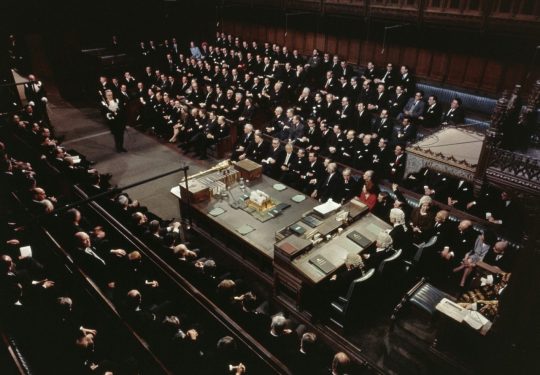A group of 107 civil society organizations from around the world, including Open State Foundation, Sunlight Foundation, the Latin American Legislative Network, Open Knowledge and Access Info Europe launched a global campaign to highlight the importance of transparent and accountable legislatures, and to help parliaments embrace new technologies when publishing information about their work.
In addition to civil society endorsers, early supporters of the campaign include members of the European Parliament, the Speaker’s Digital Democracy Commission in the United Kingdom and the Brazilian Chamber of Deputies.
The public letter, issued in coordination with the Global Legislative Openness Week, calls on national assemblies to make parliamentary and legislative data open by default by proactively releasing information in open and structured formats and making it available to the public free of charge. These principles are enshrined in the Declaration on Parliamentary Openness, a call to parliaments for an increased commitment to openness.
Public access to legislative data is already bringing lawmaking into the 21st century around the world. In 2012 Open State Foundation sent a similar request to the chairwoman of the parliament in the Netherlands and organized Apps voor Democratie in the parliament building in The Hague. Civil society organizations like mySociety in the UK, PoPong in Korea, ePanstwo in Poland, or Fundacion Ciudadano Inteligente in Chile are developing software that makes it easier for constituents to get in touch with their representatives (and vice versa). Others are creating visualizations that track the history of a particular issue and its supporters to illustrate how a bill has changed over time, and developing customized alert systems to follow legislative actions. These initiatives are designed to strengthen and modernize legislatures, and to help people address the challenge of declining trust in governing institutions worldwide. They can also help parliamentarians to better represent their constituents and engage with an increasingly technology-enabled public.
‘The notion that parliamentarians serve at the behest of citizens is fundamental to democratic governance,’ said John Wonderlich, policy director at the Sunlight Foundation, a Washington, D.C.-based open government group leading the campaign. ‘Parliaments hold information not for themselves but as stewards of the public good, and information about them belongs to the citizens.
‘We believe it is time for parliamentarians around the world to strengthen their roles as representatives elected by and for the public, and embrace new technologies that are changing how societies connect, communicate and govern,’ Wonderlich added.
The letter — addressed to the presidents and speakers of all national assemblies`has been translated into 10 languages including French, Spanish, Arabic and Russian, and many of the groups involved in the campaign are organizing local awareness-raising events throughout the week.
